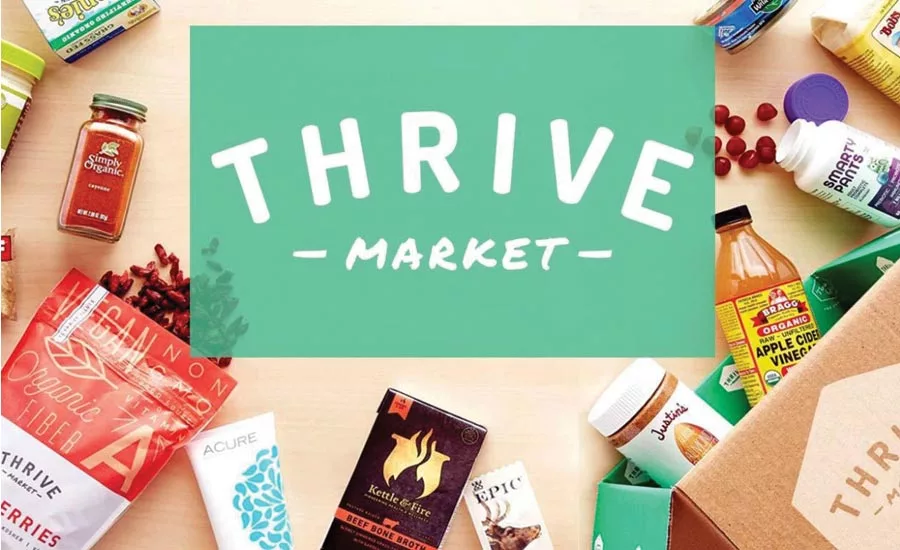Natural, organic retailers continue upward path
Online retailers also helping channel grow

A cheesy but comical pick-up line that once bounced around different social media platforms says “If you were a fruit, you’d be a fine apple.” As consumers continue to value their health and wellness, natural and organic retailers seem to be the “fine apple” of the grocery channel as it continues to outpace the total grocery market, experts say.
According to Chicago-based SPINS, natural food and beverage products grew 5 percent in the 52 weeks ending May 19, reaching $47.2 billion in dollar sales, the market research firm says in its ”2019 State of the Natural Industry” report. Natural products make up 10.5 percent of the dollar volume of the total grocery retail market, yet are responsible for the 29.3 percent of dollar growth across the total marketplace, in part due to a more premium price point, the report states.
Furthermore, in a Lightspeed/Mintel online survey, the Chicago-based research firm found that out of 1,942 respondents, about half (52 percent) said they do at least some of their grocery shopping at a natural or organic retailer, according to Mintel’s May “Grocery Retailing – US” report. A further analysis found that of those who shop at natural or organic retailers, 21 percent are aged 18-34 while 18 percent of those are aged 35-54. Finally, those 55 and older accounted for 13 percent, Mintel reports.
“[A]s a further indication of the increasingly intense and complex competitive landscape for traditional supermarkets, grocery shoppers aged 18-34 are considerably less likely than their older counterparts to shop in traditional supermarkets and more likely to visit a variety of other retailers and channels, emphasizing various combinations of low prices, convenience and healthfulness,” Mintel’s report says.
A September infographic from Whole Foods Market, Austin, Texas, also highlights the impact of millennials on the natural foods industry. A YouGov Methodology survey conducted for Whole Foods included 1,006 U.S. adults aged 22-37 who answered questions based on their food, health and grocery preferences. The following are results from the survey:
- 80 percent consider quality a top factor;
- 65 percent say transparency in food sourcing is important;
- 63 percent try to incorporate more unprocessed foods and plants into their diets; and
- 60 percent say they are aware of the implications their food choices have on the environment
Regaining traction
Organic retailers have continued to show growth in sales. According to the Organic Trade Association’s Organic Industry Survey 2019 report, the overall industry grew by 6.3 percent in 2018. Food is the key component in the organic marketplace, accounting for 91.3 percent of sales, the Washington, D.C.-based association reports.
Online natural product retailers like Thrive Market have helped the channel fuel sales, especially in areas where organic and natural products are not easily available, industry experts say.
An online, membership-based market, Thrive Market provides high quality, healthy and sustainable products for any number of lifestyles, budgets and geographies, the company’s website says. Members can shop by categories (food, beverages, beauty, home, etc.) and by value (certified organic, non-GMO, Fair-Trade certified, vegan, etc.) and choose from more than 6,000 products.
Built from Amazon’s acquisition of Whole Foods Market, Amazon offers Amazon Prime Now, where members can shop online for food and beverage products direct from Whole Foods. Like Thrive Market, Prime Now also allows shoppers to search for products by categories such as keto-friendly food, vegan-friendly food, seasonal produce and more.
Another innovation seen in the natural and organic retail channel is home-delivery services. For instance, Fresh Thyme Farmers Market, Downers Grove, Ill., in partnership with Instacart, offers Fresh Thyme Delivers, an on-demand grocery delivery service. Fresh Thyme offers more than 5,000 organic products including a private-label assortment of more 1,500 items. Shoppers with any food allergies and specialty diets such as paleo, gluten-free and plant-based have ample options available to them, the company’s website says.
Many healthy-halo beverage products solely are available at natural and/or organic retailers. For example, Denver Bodega, Denver, manufactures Basis, a line of high-electrolyte drinks with 4 grams of sugar and a touch of monk fruit, the company says. Basis is available at select retailers such as Whole Foods, Natural Grocers and Lucky’s Market.
Additionally, King’s Row Coffee, Hanover, N.H., offers its line of ready-to-drink nitro cold-brew coffees in natural retailers like Whole Foods, Market District, Fresh Thyme and Roches Bros throughout the New England area. King’s Row cold-brews are available in five varieties: Organic Black, Maple Water, Bourbon & Butter, Decaf Cappuccino and Mushroom Mocha.
And finally, capitalizing on the keto-craze, Koia, Los Angeles, launched Koia Keto, a line of 100 percent plant-based protein beverages available at Whole Foods or through the company’s website. Koia Keto is made with nutrient-dense ingredients such as coconut milk and MCT oil to provide sustained energy, the company says.
As natural and organic trends proliferate, specialty retailers are upping their game to thrive in the competitive retail market. BI
Looking for a reprint of this article?
From high-res PDFs to custom plaques, order your copy today!






